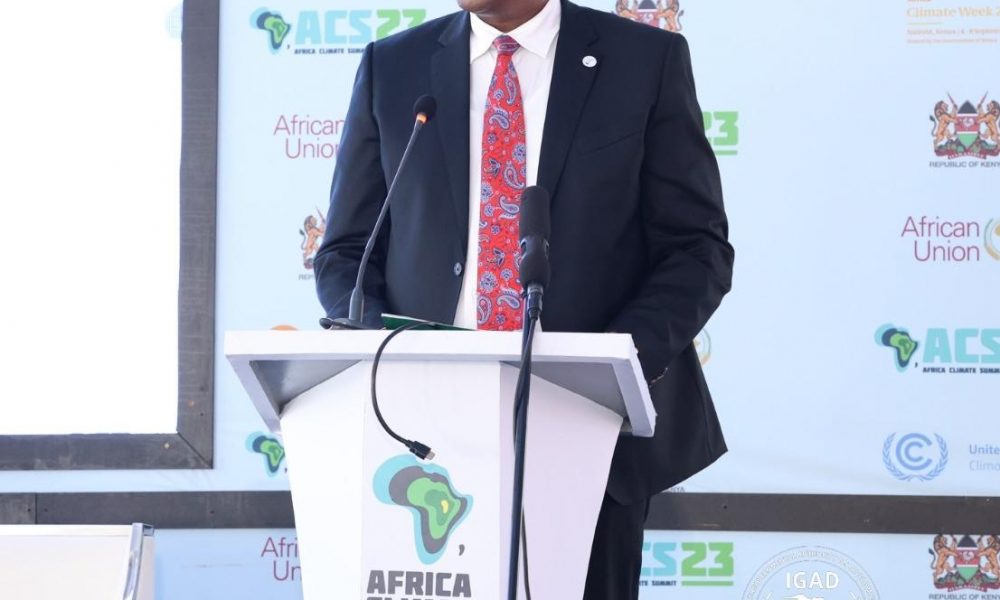By Mamer Abraham
Executive Secretary of the Intergovernmental Authority on Development (IGAD), Workneh Gebeyehu, has warned of a possible resurgence of climate risks in the region.
Mr. Workneh was speaking during the Africa Climate Summit High-Level Ministerial Dialogue in Nairobi, Kenya.
He said that climate change had imposed challenges on the region in the form of drought, which affected millions of humans and livestock.
“From a humanitarian standpoint, we are still feeling the effects of the protracted drought that threatened the lives of over 5.4 million people and killed over 9.5 million livestock, destroying household incomes,” Workneh said.
He argued that a rise in temperatures would be prevalent in the next 15 years.
Workneh noted that the drought that recently elapsed had caused a reduction in local food production by 2.5 percent and that the gross domestic product (GDP) would reduce by 30 percent in 2050 as a result of climate change.
“Oddly enough, only two years ago, parts of our region were affected by intense flooding, which displaced over 700,000 people in South Sudan and affected over 6 million others,” he reiterated.
He said climate change is therefore a crisis that knows no borders and a challenge that transcends geo-political boundaries.
“Should we fail in our duty to mitigate, adapt, and collaborate, we risk unleashing a cycle of conflict, displacement, and insecurity that will be felt far beyond our shores,” he lamented.
Last month, the IGAD Climate Prediction and Applications Centre (ICPAC) announced that El Nino, a phenomenon characterized by warming of the sea surface temperatures, would hit most parts of the region from October to December 2023.
The weather forecast indicated that southern Ethiopia, eastern Kenya, and southern Somalia would receive up to 80 percent wetter-than-usual rainfall.
Conversely, it noted that the south-western part of Uganda and the south-western part of South Sudan would experience drought.
Late in July, the ministry of agriculture and forestry in northern Bahr El Ghazal State held an assessment for a week on the impacts of climate change on farmers.
Northern Bahr El Ghazal State Director in the ministry of agriculture, Chan Kuach said they had witnessed severe impacts of climate change across the state, including in Aweil North and West counties.




